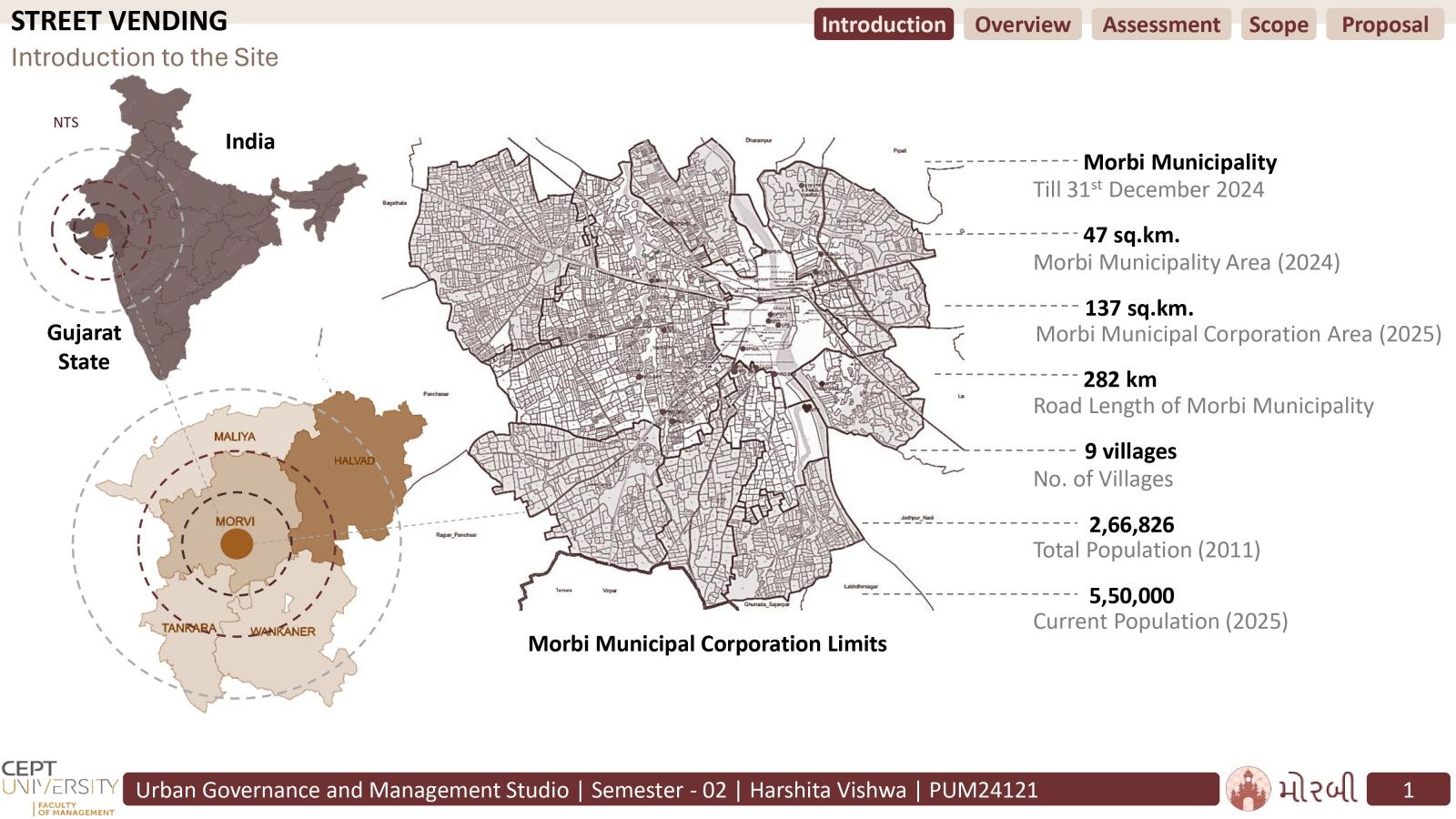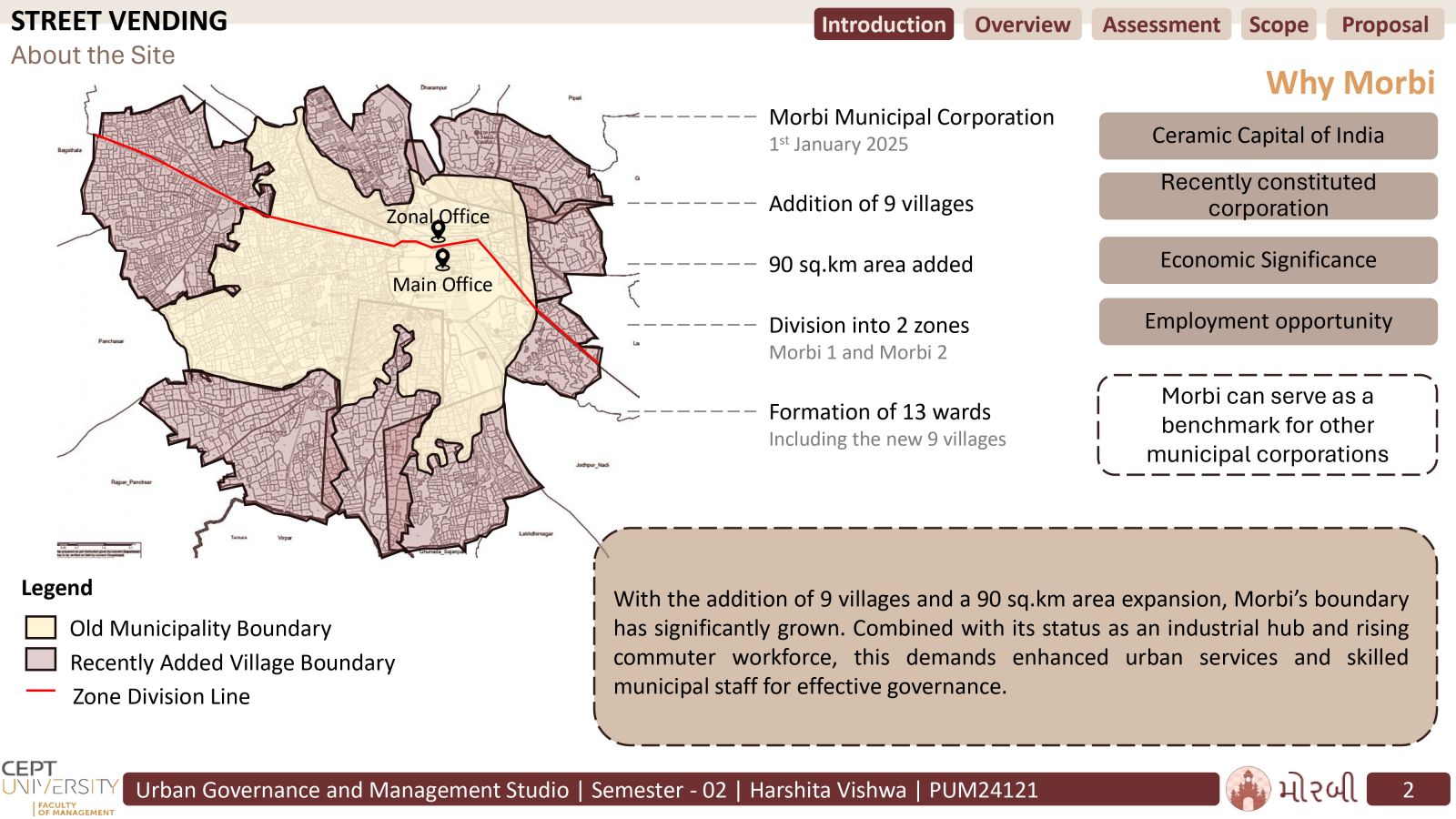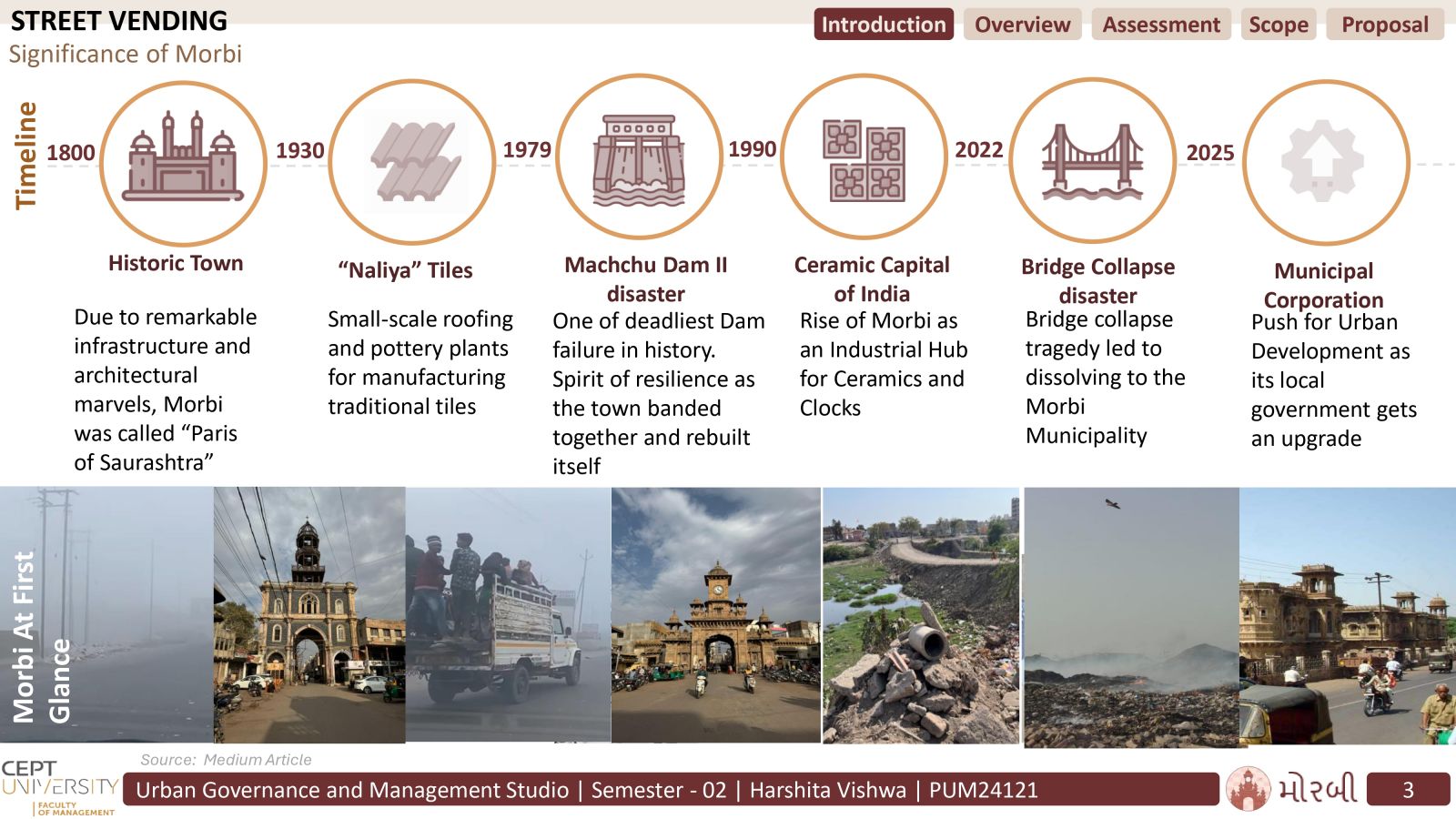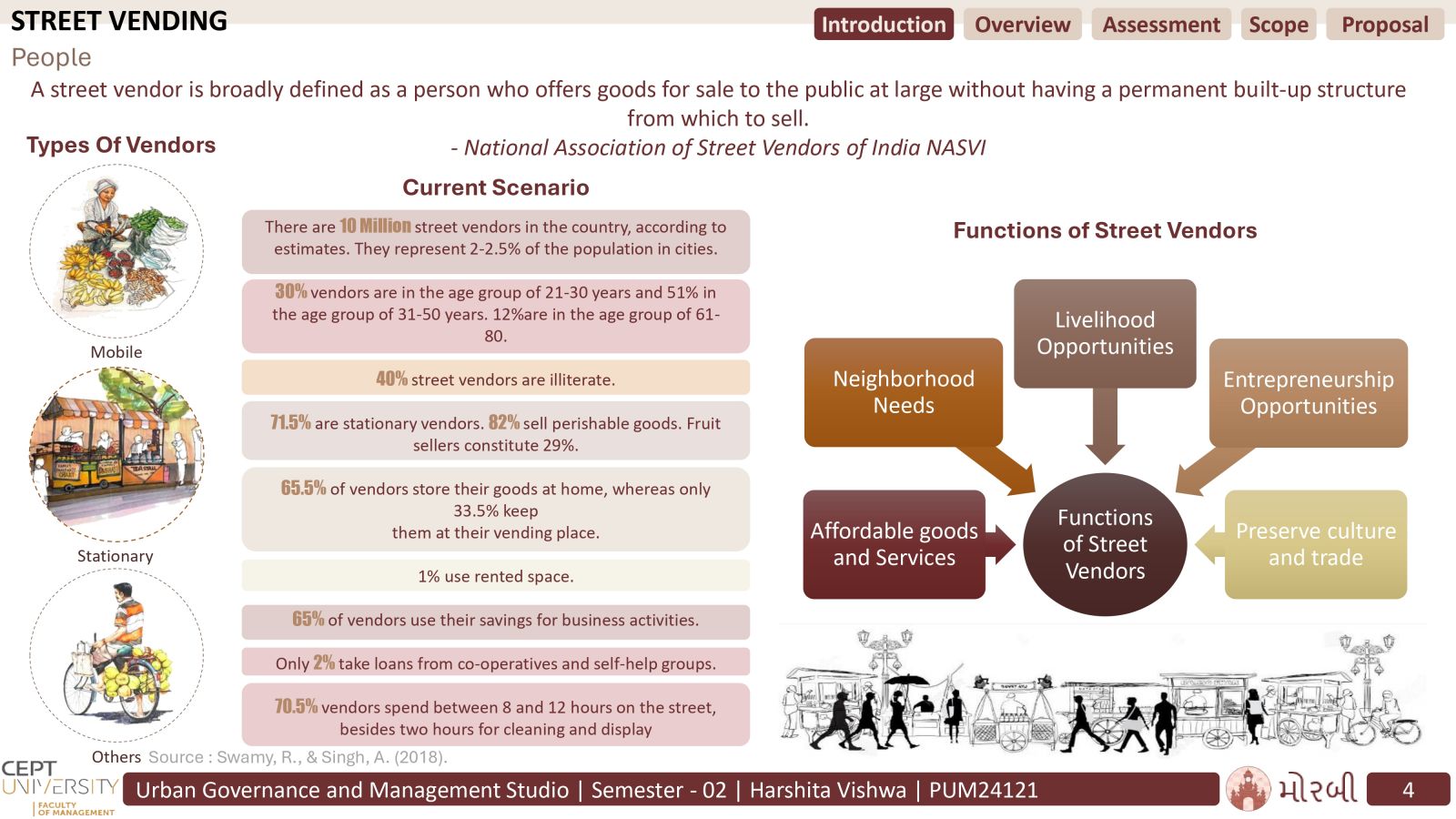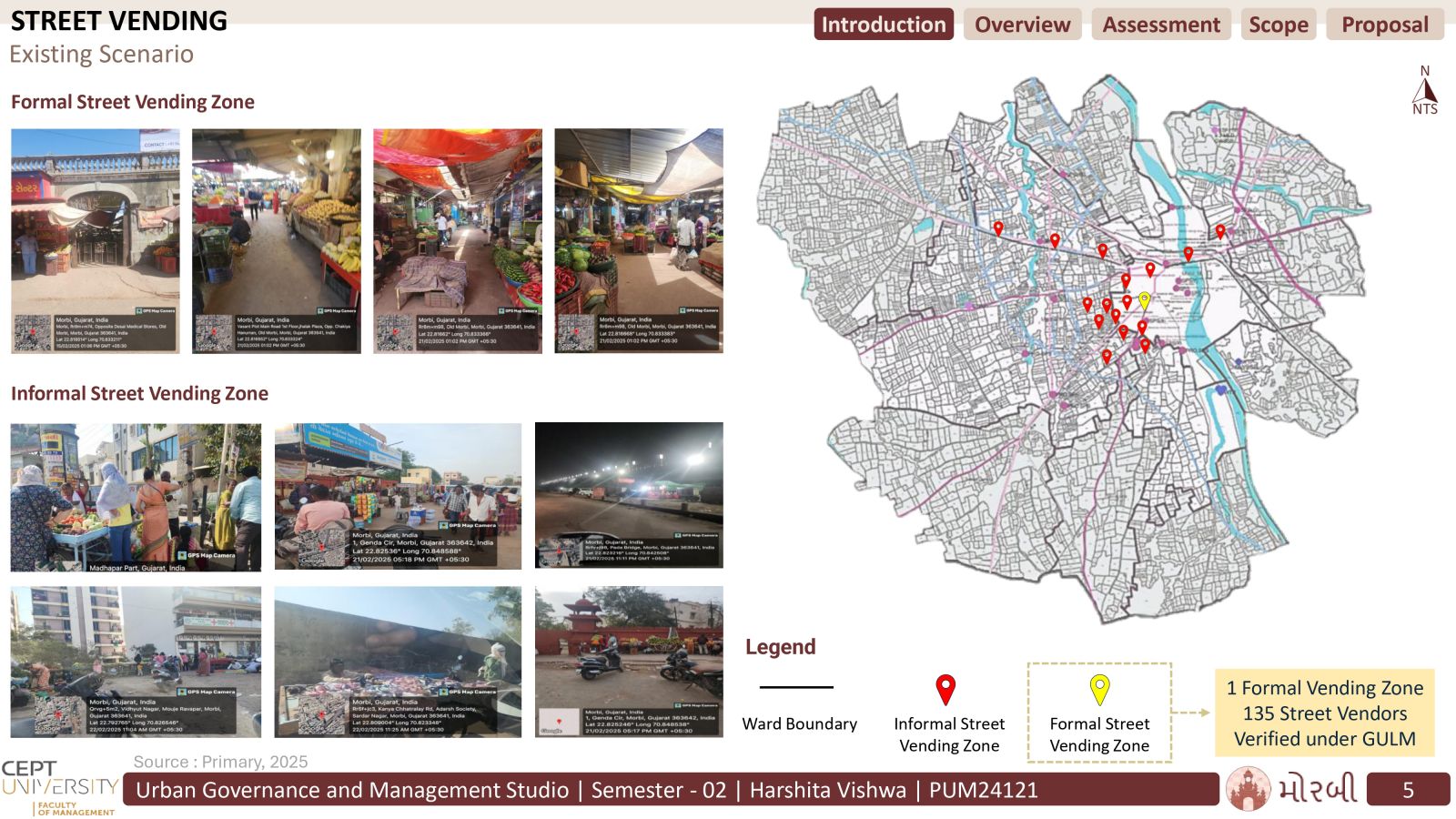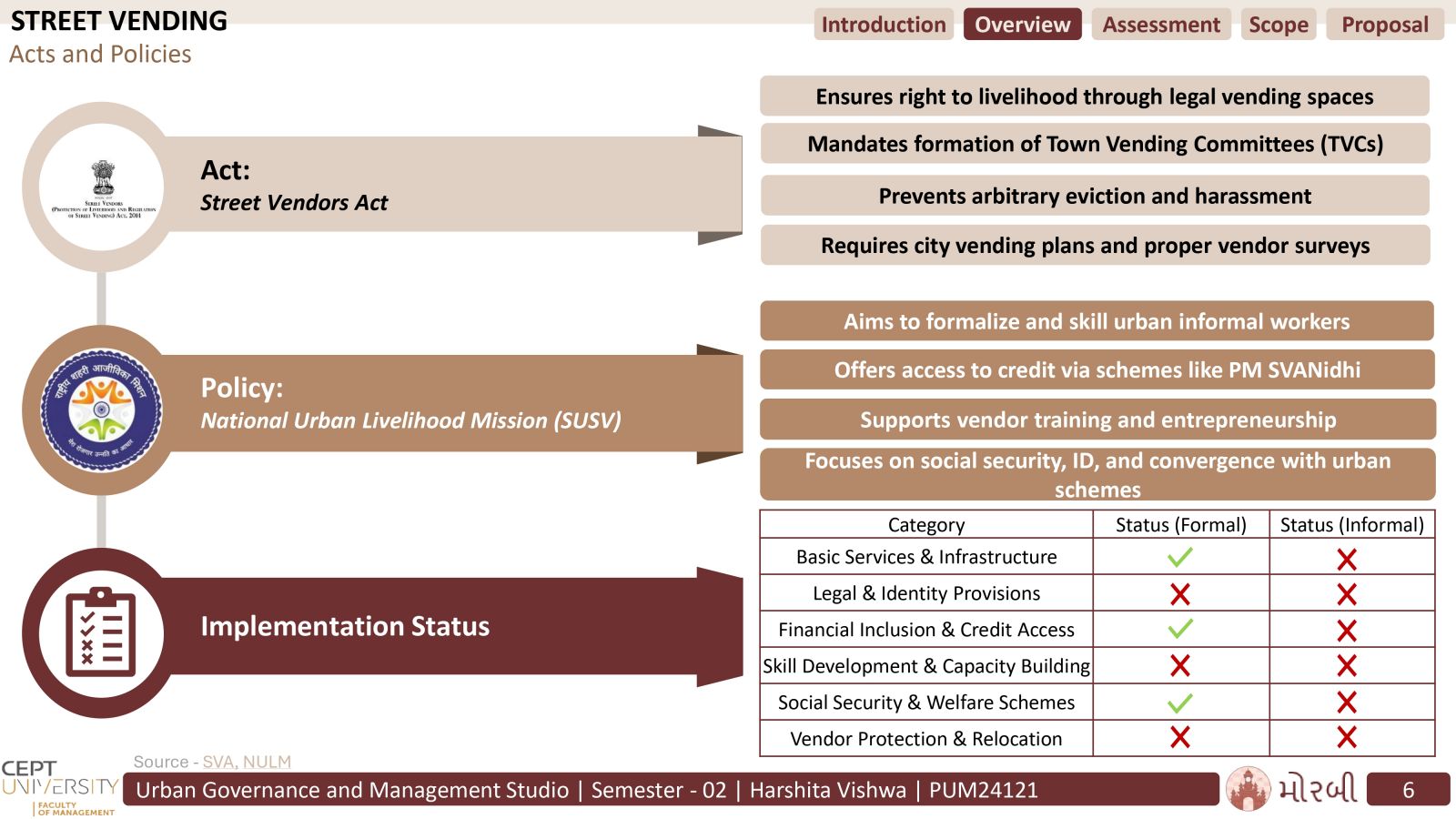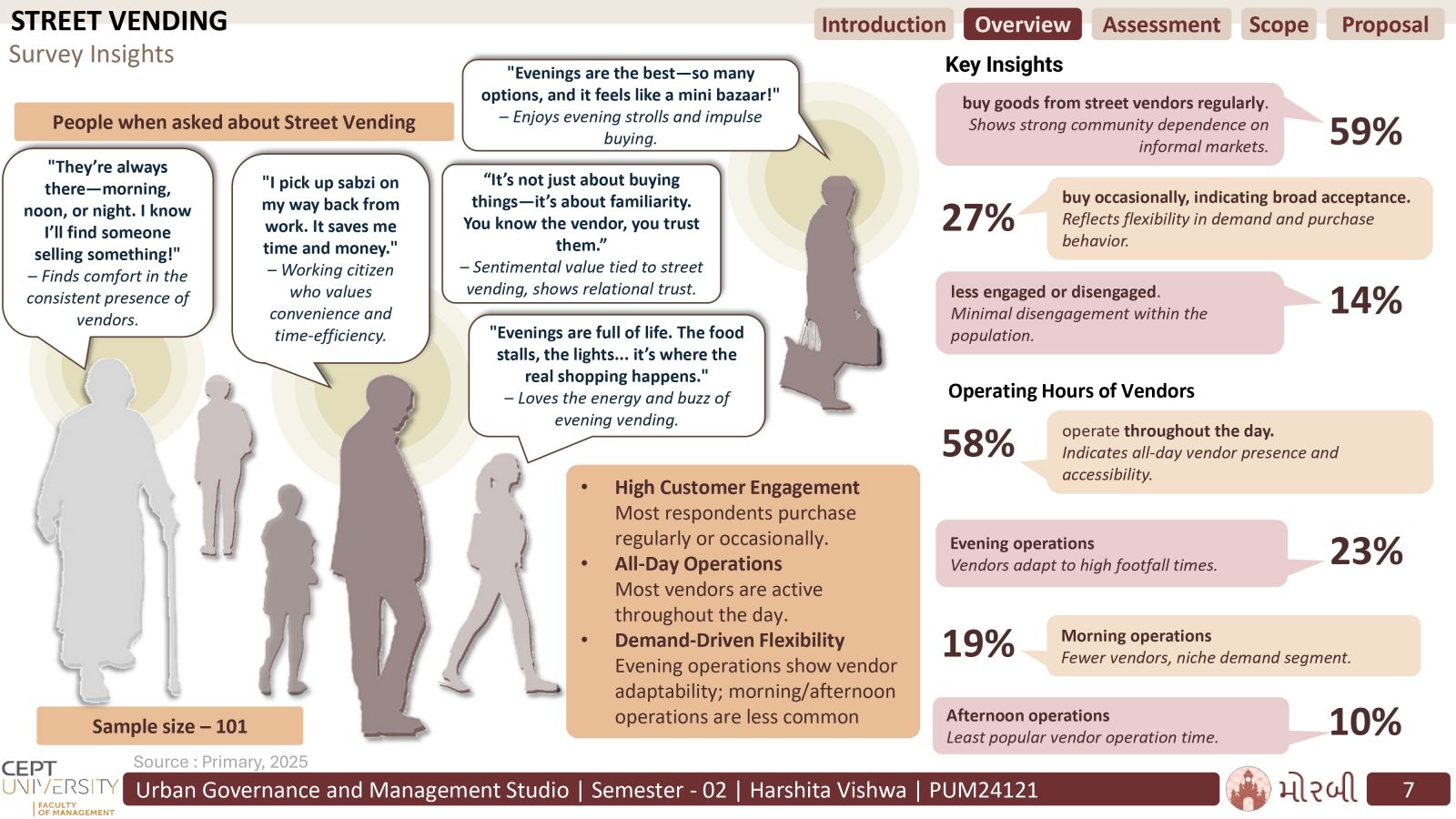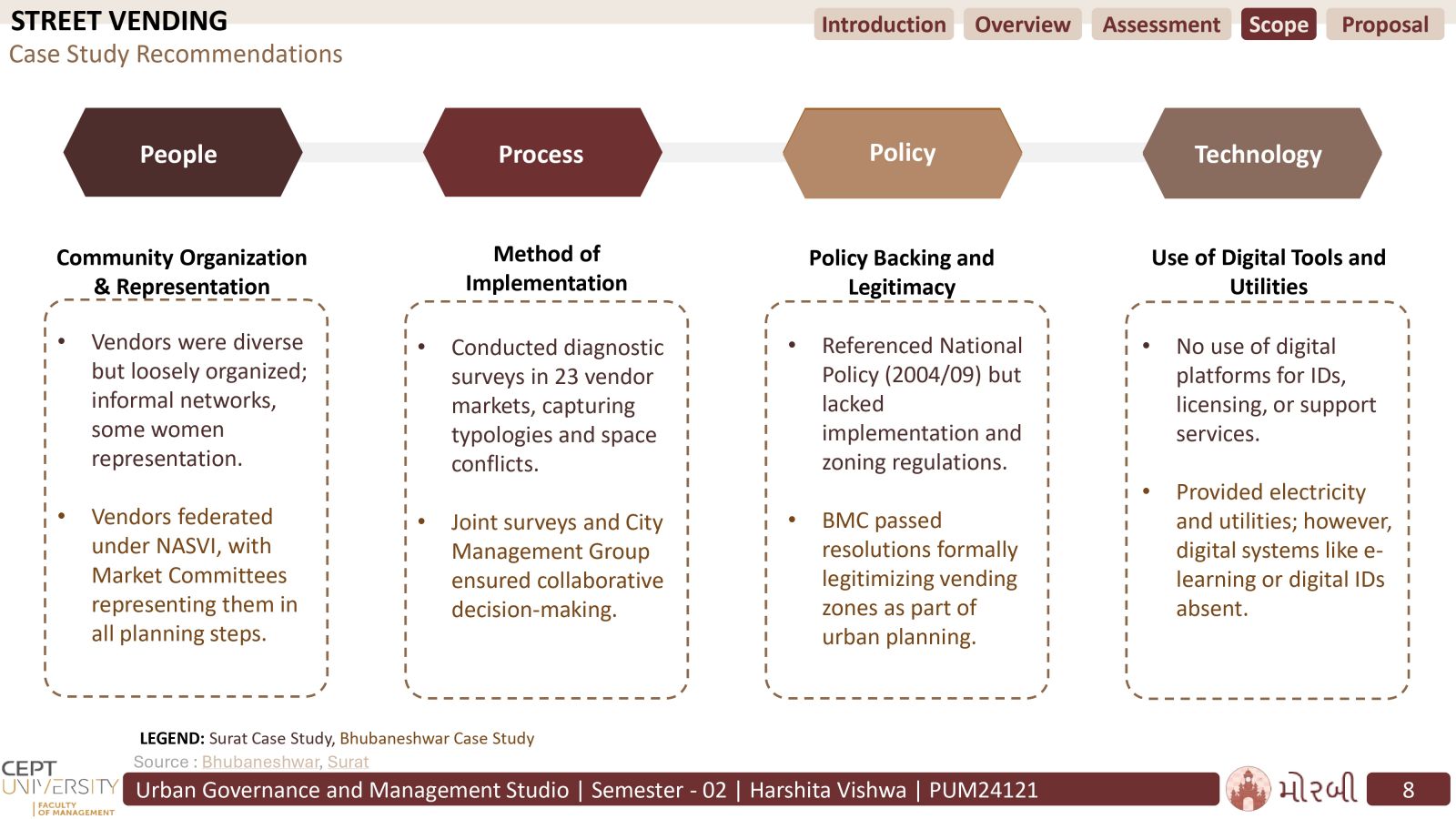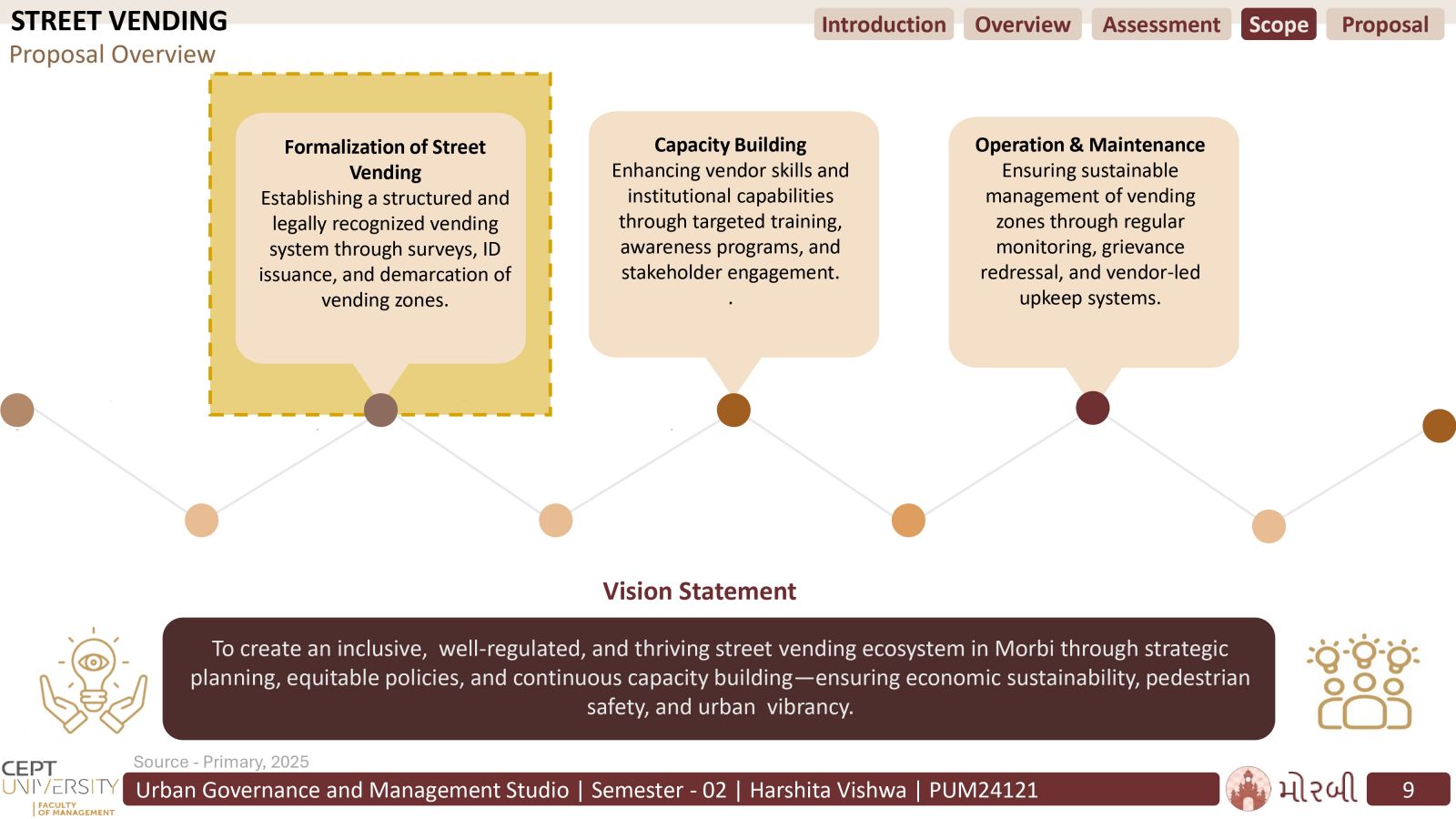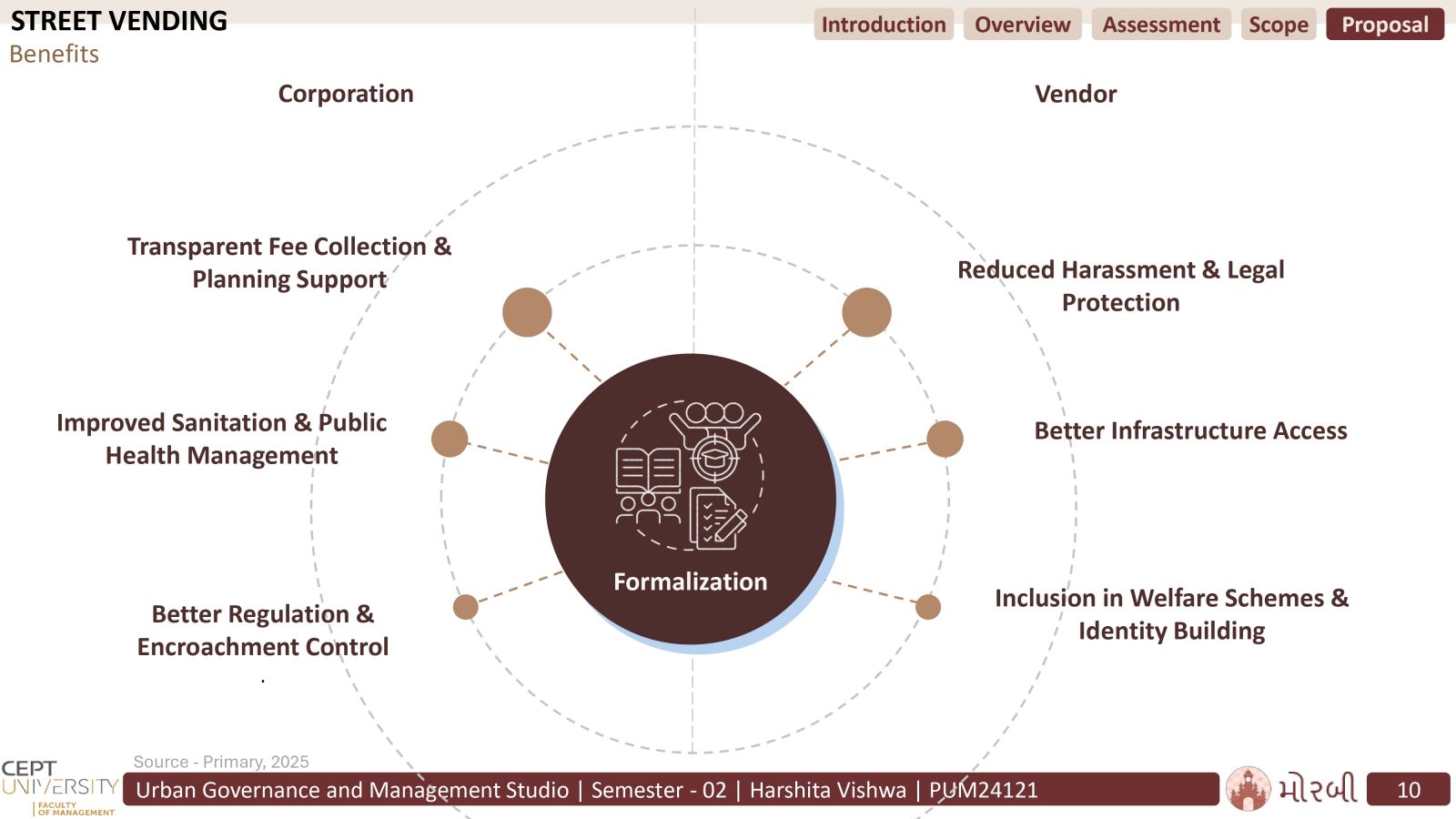Your browser is out-of-date!
For a richer surfing experience on our website, please update your browser. Update my browser now!
For a richer surfing experience on our website, please update your browser. Update my browser now!
This portfolio presents a strategic proposal for developing a well-regulated street vending ecosystem in Morbi, Gujarat. It begins by highlighting Morbi’s recent municipal expansion, economic significance, and the critical role of street vendors. The current vending scenario is assessed through primary surveys, spatial analysis, and a review of relevant policies like the Street Vendors Act and NULM. Case studies from Bhubaneshwar and Surat inform best practices. The proposal focuses on three pillars—formalization, capacity building, and operation & maintenance—to ensure vendor welfare, economic sustainability, and improved urban governance, ultimately aiming to balance inclusivity with effective street management.
